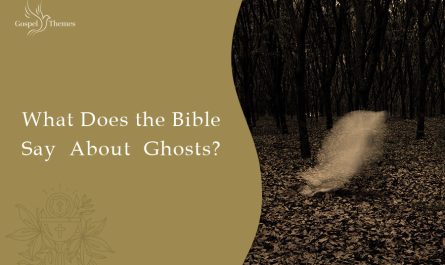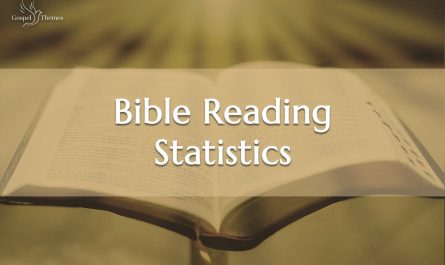Raising children, you often tell them poems, lullabies, and prayers before sleep. This article will explore the meaning, symbolism, and origin of the “Now I Lay Me Down to Sleep” prayer.
Although it sounds biblical, “Now I Lay Me Down to Sleep” prayer is not in the Bible. Let’s dive in to learn everything you need to know about these popular verses.

The Origin: “Now I Lay Me Down to Sleep”
One of the most beloved prayers that has comforted many children is “Now I Lay Me Down to Sleep”.
These suiting verses are more and more popular with the years passing.
“Now I lay me down to sleep,
I pray the Lord my soul to keep;
If I should die before I wake
I pray the Lord my soul to take.”
At first hearing, this poem sounds like it comes from Scripture. However, even though it expresses a Christian wish for God’s care, this poem does not come from the Bible.
The origin and inspiration of this poem date back to ancient times. The “Now I Lay Me Down to Sleep” prayer was probably inspired by an ancient German poem called “The Black Paternoster and the Four Corners” prayer in English.
The earliest version was probably the one written in 1698 by George Wheler. In 1711, Joseph Addison wrote a version of this prayer in his Spectator magazine. Addison was a reverend’s son, so he must have been influenced by Psalm 4.
However, according to many researchers, the first known appearance of this prayer is the 1737 edition of the New England Primer by Thomas Fleet.
The popularity of the poem
Regardless of its origin, this prayer has become one of the most adored ones, and it appeared in many art pieces, like portraits, Broadway musicals, songs, and movies.
Although this prayer is a nursery rhyme, it may also bring peace, calmness, better sleep, and confidence to adults since it carries a powerful message.
Different Versions of the Poem
The most commonly known version is:
“Now I lay me down to sleep,
I pray the Lord my soul to keep;
If I should die before I wake
I pray the Lord my soul to take.”
17th century version
However, there are longer versions of the poem that date back to the 17th century.
“Now I lay me down to sleep,
I pray thee, Lord, my soul to keep;
If I should die before I wake,
I pray thee, Lord, my soul to take.
If I should live for other days,
I pray thee, Lord, to guide my ways.
Amen.”
Matthew, Mark, Luke, and John’s version
The prayer has been adapted and inspired by the nursery rhyme called the Black Paternoster or Matthew, Mark, Luke, and John.
Those verses go like this:
“Matthew, Mark, Luke and John,
Blessed the bed that I lie on.
Four corners to my bed,
Four angels round my head.
One to watch and one to pray
And two to bear my souls away.”
World War I poster version
This prayer has become a favorite to many generations. Therefore, it has been shortened, lengthened, and modified.
For example, on a World War I poster, the prayer was represented like this:
“Now I lay me down to sleep
I pray the Lord my soul to keep,
God bless my brother gone to war
Across the seas, in France, so far.
Oh, may his fight for Liberty,
Save millions more than little me
From cruel fates or ruthless blast,
And bring him safely home at last.”
The Meaning of “Now I Lay Me Down to Sleep” Prayer
The meaning of this prayer, taught to children for generations, is related to faith, trust, and surrender to God. While many children recite this poem, they are not aware of the actual meaning of it. “Now I Lay Me Down to Sleep” has a deep spiritual significance.
This prayer is a reminder to acknowledge how fragile human life is. It teaches children to pray before sleep, seeking protection and guidance from God. It also gives children peace when they recite it.

Interpretation of the verses
First stanza
The first line, “Now I lay me down to sleep”, refers to the end of the day when a person is about to rest or sleep. By saying these words, a person is telling God that they are surrendering to the hands of God.
The second line, “I pray the Lord my soul to keep”, highlights the idea of divine protection. This prayer tells us that life is unpredictable. When you sleep, you can not protect yourself from danger. Giving the soul to God shows the person’s faith in his power.
The third line, “I should die before I wake”, confronts the fact that death is real. It acknowledges the fact that one might not wake up. Again, this phrase reminds you that life is fragile. All you have to do is place your trust in God’s hands.
The closing line of the first stanza, “I pray the Lord my soul to take”, shows a person’s wish to give their soul to God if they die.
On the other hand, it shows a belief in the afterlife, where God decides what will happen to your soul. It demonstrates the fact that even when dead, one’s soul will continue to live.
Second stanza
The verses “If I should live for other days, I pray the Lord to guide my ways” convey a message that the child should be aware that tomorrow is not promised. These words are a desire for God’s guidance. These lines encourage children to seek wisdom from a higher power.
The message of the poem
Despite its childlike simplicity, the prayer has a profound theological message. It reminds you of life’s uncertainties and the importance of trusting in a higher power.
It encourages surrender and humility by teaching you to recognize your vulnerability. It also mentions the concept of mortality and the hope for eternal life.
The word “pray” throughout the prayer highlights the importance of communication with God. It teaches children that prayer is a means of seeking comfort, guidance, and protection. It also encourages them to develop a personal connection with God.
Moreover, this prayer can create a deep sense of comfort and solace, especially in times of fear and anxiety. The “Now I Lay Me Down to Sleep” prayer reassures you that God is here to protect you, no matter what. It teaches both children and adults that praying is a source of strength and peace before resting.
The significance of “Now I Lay Me Down to Sleep” lies in its ability to introduce young children to foundational spiritual concepts. This poem teaches children valuable life lessons. It reminds them of believing and seeking protection from God.
Moreover, it teaches children discipline and routine by repeating the prayer every night.
Similarities Between the Poem and the Bible
Although this poem is not biblical, it reveals some biblical truths. This poem talks about a heart devoted to God.
Similarly, King David’s heart was dedicated to God in the Bible. David believed in God’s goodness because God saved him many times, as a child and as a king in battle. Therefore, many of his psalms encourage you to trust in God.
For example, Psalm 4 conveys the same emotions as “Now I Lay Me Down to Sleep”. Maybe its authors were somehow inspired by Psalm 4.
“In peace I will lay down and sleep, for you alone, Lord, make me dwell in safety.”
According to David’s writings, we can be sure that:
God cares about you
“But you, Lord, are a compassionate and gracious God, slow to anger, abounding in love and faithfulness.” Psalm 86:15
God remembers you
“…he remembers his covenant forever, the promise he made, for a thousand generations…” Psalm 105:8
God listens to your prayers
“I waited patiently for the Lord; he turned to me and heard me cry.” Psalm 40:1
God protects you
“You are my hiding place; you will protect me from trouble and surround me with songs of deliverance.” Psalm 32:7
What can this prayer teach you?
Believers can only benefit from saying prayers. Although this prayer is short, it teaches you many good things.
Saying this prayer every night makes you focus on God and believe him.
Praying to God means that you appreciate and are devoted to him.

What Does the Bible Say About the Power of Prayer?
Many verses in the Bible highlight the power of prayer. These verses emphasize the belief that prayer is powerful and effective when done in faith. It encourages believers to present their requests, concerns, and thanksgiving to God.
John 5:14-15 “This is the confidence we have in approaching God: that if we ask anything according to his will, he hears us. And if we know that he hears us – whatever we ask – we know that we have what we asked of him.”
Prayers remind you that God is close. If you pray to ease sleepless nights or ask God for something, praying calms you. When you think you do not know what to say, the Holy Spirit talks through you.
Philippians 4:6 “Do not be anxious about anything, but in every situation, by prayer and petition, with thanksgiving, present your request to God.”
The Christian religion teaches you to devote your life to prayer. “Now I Lay Me Down to Sleep” is a great reminder to pray before sleep. Each day is a chance to be better, fight evil, and believe in God.
FAQs
Is “Now I Lay Me Down to Sleep” a real prayer?
This bedtime prayer, which is a poem, was a plea to the Almighty to protect the soul of the person who prays. It is one of the most popular and loved children’s bedtime prayers.
Where does it say, “I lay down to sleep” in the Bible?
Psalm 4:8 says, “In peace will I both lay me down and sleep; for thou, Jehovah, alone, makes me dwell in safety.”
Bottom Line
The “Now I Lay Me Down to Sleep” prayer is a popular children’s poem that serves as a bedtime prayer. Although it is not a biblical prayer, it may be inspired by bible verses. This poem carries great significance.
It invites people to trust God’s care and surrender their lives to his loving hands. Moreover, the poem reminds you of the uncertainty and fragility of life and the hope of eternal life and divine protection.
This simple prayer has touched the hearts of millions, serving as a source of comfort, faith, and spiritual guidance across generations.

 by
by 

